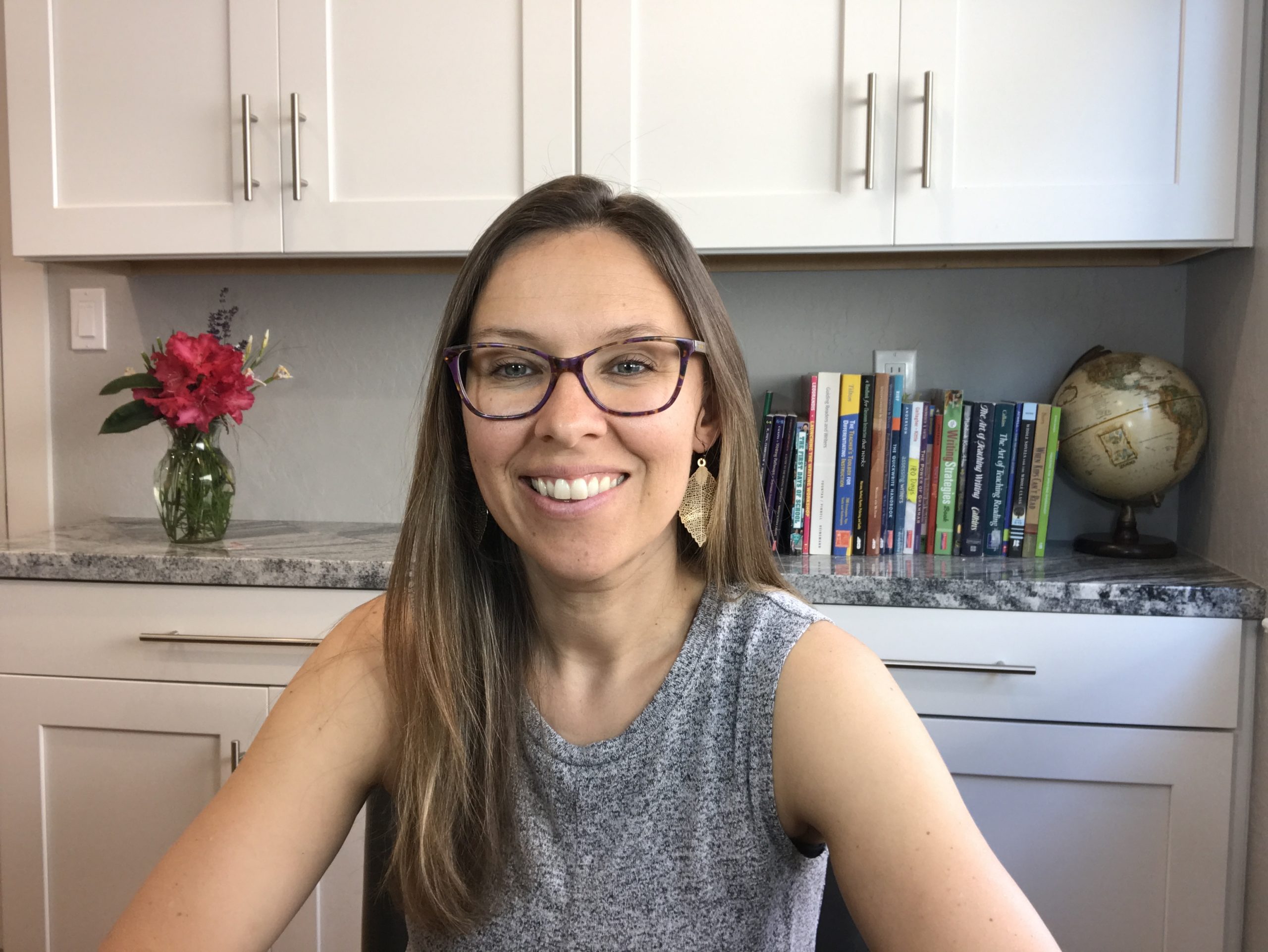
Education
I have a B.A. in English Literature and 14 years of experience teaching grades 3-8.
Philosophy
Every year is a unique and exciting challenge to inspire a new group of students to become avid readers and writers, in real life, not just in school.
Ultimately, I believe all passionate English teachers want their students to pursue reading and writing outside of school, for personal insight, knowledge and growth. But, teachers often get caught in the weeds of trends and scripted programs pushed on them. They forget their goals and what’s most important…students who are actually motivated to read and write and see the value in doing so.
Most teachers I know love planning engaging lessons that reveal the power of reading and writing and just lack enough time to do so.
This is where I can help.
I have used many methods to teach English until I realized through a lot of research and trial and error that teaching reading and writing is pretty simple with the following:
Knowledge
Recently I read two books that had a profound effect on me. Those books are 7 Myths of Education by Daisy Christodoulou and The Knowledge Gap by Natalie Wexler. Both these books made me realize how critical knowledge is in our classrooms especially if we as teachers want to promote educational equity.
Wexler and Christodoulou argue that students (especially underserved students) need access to more knowledge about the writing process, history, science and current events. Students who are armed with more knowledge are better readers and writers and current research about how people learn proves this. So, we must make knowledge the foundation of all we do in our classrooms by providing students opportunities to read, discuss and write about topics that are important for all humans to be knowledgeable about!
But, what are those topics? There’s a lot of debate about this that I won’t go into here. E.D. Hirsch has many ideas about what topics all Americans should know. What I know is in my English classroom we read a lot together…articles about current events, primary resource documents, graphs, short stories from other time periods are all fair game.
Structure
There are many ways to run a classroom but what is most vital is having a consistent structure in place.
Reading and writing workshop allow for choice and flexibility while also maintaining a predictable structure we can depend upon. That structure consists of a mini lesson, work time, time for conferences and closure.
I don’t follow this structure every single day.
I love changing things up and trying out new strategies but for the most part I use workshop. Having a common language and structure to build lessons and learning is so important in a classroom of 30+ students!
Purpose
I learned about Project-Based Learning early in my career. I was immediately hooked.
Students should feel what they are doing is worthwhile, that it matters, that it will not be thrown in the recycling bin, placed in a filing cabinet, stamped without a second glance or stuffed into a take home mailbox.
PBL and simulations provide memorable learning experiences and the end results are something students can be proud of.
I don’t always follow PBL step by step or simulation lessons completely. But the philosophies behind both these methods of teaching guide much of what I do in the classroom because purpose in writing and in all subjects should be at the forefront of all teachers’ minds.
Passion
I haven’t always loved writing and only recently considered myself a writer when I started blogging on this website.
But, I’ve always loved telling students stories from my childhood, writing what I expect them to write, telling them about the books I love, and sharing details about my reading and writing life.
Sharing my experiences, my stories and my process with students has been the key to connecting with them on a very real level about what it takes to be a reader and a writer.
I’ve always believed the following about instilling a love of reading and writing in my students:
- Writers need to be able to choose topics they feel strongly about.
- Readers need to be able to choose books they are excited to read.
- Writers need to feel their stories, experiences, and opinions matter.
- Readers and writers need passionate teachers who write and read alongside their students.
- Teachers need to listen to their students and involve them in the creation of a community that values the beauty and joy of reading and writing.
Personal
My husband, daughter and extended family who live in WA state all support me in countless ways. I love being outdoors hiking, biking and skiing. Meditation keeps me centered, calm, and kind. I always make time for reading and writing. I like to think I have a pretty good sense of humor and especially take pleasure in making my family, friends, colleagues and students laugh.
You can connect with me via live video sessions every month and get support with your craft by joining Workshop Teacher School. Learn more by clicking the button below…